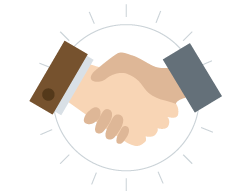 Acquiring used machinery is something that a company must consider very carefully. Whether you’re expanding your business capabilities, working on a project that requires equipment not already in your possession, or simply replacing current machinery.
Acquiring used machinery is something that a company must consider very carefully. Whether you’re expanding your business capabilities, working on a project that requires equipment not already in your possession, or simply replacing current machinery.
The two main options you have are to buy or lease the used machinery; however, with many pros and cons for both, this decision is not always straightforward. To determine which option is best for your company, there are several factors that must be taken into consideration.
Your Company’s current financial situation
Unsurprisingly, finances should be taken into account first and foremost: does your company have the capital necessary to buy a piece of equipment? For some, buying used machinery can be advantageous in regards to long-term costs. While buying used machinery may be more expensive up-front, the cost of leasing machinery can add up quickly over time. Buying used machinery also provides owners with the opportunity to cash in on their investment later on, if they decide to sell.
However, owning used machinery means that you are responsible for maintenance and operating costs, as well as insurance and other fees. On the other hand, being responsible for maintenance means that you can ensure that any problems get fixed immediately, and to your standards.
If buying used machinery seems like a better option for your company, but you are concerned about up-front expenses, there is also the option of getting equipment financing. This option uses the actual machinery as collateral on your loan. In this case, companies are often able to add the machinery to their balance sheet as an asset, with the debt as a liability. This can be used as deductions to income on your income statement.
Purpose and frequency of use
For what purpose and for how long a company needs a particular piece of used machinery is perhaps the most deciding factor when it comes to whether or not they should buy or lease the equipment. If you are in need of a piece of machinery for a short-term project, then leasing is probably a better option.
Machinery acquired through leasing is subject to fixed payments. These must be paid for the term of the lease before the equipment is returned to the dealer or leasing company. If a company can accurately estimate the amount of time they will need to spend on a particular project or job, then leasing can be suitable financially. The risk is if the machine ends up not being used for the entire time it’s leased; in this case, you’re wasting money on a machine that is not actively producing anything for your company.
If the used machinery is integral to your company’s ability to function and/or generate products and revenue, then buying probably makes more sense. Because taking out a lease involves paperwork and sometimes complicated negotiation, if you don’t negotiate properly, you risk paying more than you should or not getting the best deal. Buying is simple – once you have purchased the equipment, you are the owner.
Overall Pros and Cons
Every company’s needs are different when it comes to acquiring used machinery. These needs must be considered from a financial, as well as practical, standpoint. There are many pros and cons when buying or leasing used machinery:
Buying Pros
- You are the owner, so you are able to make all decisions related to the maintenance of your machinery
- You can sell the machinery when you are finished with it
- Easier because you don’t have to deal with agreements and contracts, which can be especially useful when it comes to buying smaller equipment
- What a leasing company has to offer is not limiting you
- Equipment is available whenever you need it
- Possible tax advantages
Buying Cons
- The initial cost will be much more expensive than if you were to lease
- If your machinery becomes outdated, you are stuck with it because you own it, and it may become more difficult to sell
- You have to take care of all maintenance and costs, which can become expensive depending on how extensive a repair is
Leasing Pros
- Less initial cost. Although leasing used machinery can add up over time, it will save you from huge financial costs initially. This can be a significant financial strain, especially on small businesses
- Useful for machinery that needs to be updated often
- You don’t have to pay for maintenance
- Expert advice from leasing firm
Leasing Cons
- Usually more expensive over time (better for shorter jobs/projects)
- No equity – you can’t sell equipment once you’re finished with it
- The available length of a leasing contract may be longer than what you need. You have to pay even if you’re not using the equipment
- The leasing company’s specifications determine maintenance (could be more expensive)
- Limited availability of products
Thank you for reading our articles, stay informed about the industrial world and Exapro by following us on Exapro Hub, Facebook, Twitter and LinkedIn.



